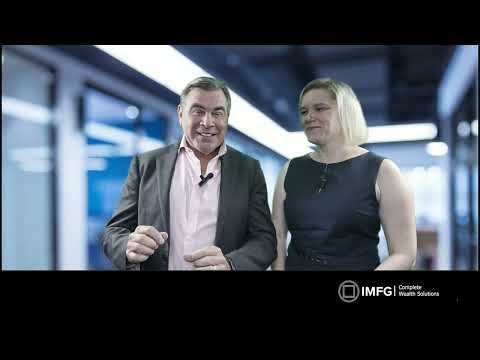Understanding your investment options in 2021.
Considering investing? Understand what investment options are available to you in 2021.
If you are new to investing or are considering developing an investment strategy in 2021, it’s essential to understand what investment options are available. Investing your money wisely allows you to protect your assets, and leverage those assets to gain long-term financial benefits, including asset growth and residual income.
One key consideration we also take into account at IMFG is also aligning your investment strategy with your personal values. We’ve found that many of our clients want their investments strategy to reflect these values. This includes investing in assets that are either environmentally friendly, have a clear benefit to society or have a governance bent to them – without compromising investment returns. This is an important consideration when you are considering investing.
Here we give you a general overview of the different investments you can make, to help you understand how they can help you achieve your financial goals.
Types Of Assets
Investments are generally split into two categories: defensive assets and growth assets.
Defensive Assets
Defensive assets are the more stable of the two and often come with less risk. The aim of making a defensive investment is to protect capital and earn an income in the process. They are less likely to lose money, but the returns will be lower.
Defensive investments include cash and fixed interest investments.
- Cash: this includes money in bank deposit, high-interest savings accounts and term deposits. This is considered a stable investment and the chance of losing money over a short-term period is minimal. However, returns tend to be one of the lowest of all assets.
- Fixed interest: this includes investments such as bonds and debentures. As the investor, you are effectively lending money to a corporation or government. The returns come in the form of interest paid on the ‘loan’. They tend to bring better returns than cash, but still on the lower end.
Growth Assets
Growth assets grow your investment over a long-term period. They are usually higher risk than a defensive asset, but that also comes with a higher potential return. They aim to give capital growth in some cases, also provide an income. Growth investments include shares, property and alternative investments.
- Shares: when you buy a share, you buy part of a company. From here, you will receive a dividend payment, where the profits are distributed to shareholders. Shares tend to fluctuate in price, with the highest return earned over the long term.
- Property: over the long term, property returns will likely be higher than cash or fixed interest. Rental income is a big component of property returns, which can provide a stable income as well as capital growth that can be achieved when holding a property investment over a long period of time.
What type of investment is right for you?
Any significant financial investment should not be made on a whim. It’s important to do your research thoroughly, considering what your end goals are and how much money you have to spare. Here are some things to look at before committing to an investment:
- Your needs and goals: are you looking for a long-term investment or just short term? Are you willing to take a risk, or looking for something more stable?
- Your personal values: what is important to you? Does your investment strategy need to align with your personal values?
- How the investment works: how much do you need to invest, and how will it earn a return?
- Consider how the investment generates a return and what type of return is expected: will you grow your capital gain or are you looking for an income?
- The risks involved for the investment: weigh up the risks involved with the expected return to determine if it is right for you.
- The fees and charges for buying, holding and selling the investment: if you are investing short term, you want to make sure it is financially worth it when factoring in the fees involved in the process.
- Investment length: How long you should invest to receive the expected return.
- How hands-on is the investment: depending on the type of investment you choose it can take up a little or your time, or a lot. Factor in whether you have that time to spare before committing.
- Legal and tax implications of the investment.
- How the investment will contribute to your diversified portfolio.
You can find this information in the product disclosure statement (PDS). It certainly pays to do your research, so you can go into an investment with your eyes wide open and knowing exactly what to expect.
How will you invest?
When it comes to investing you need to decide whether you'll:
- do it yourself, or
- pay a professional to do it for you
Both options have their benefits — and you can, of course, do both. In fact, spreading your money across different types of investments (ie, some self-managed and other managed for you) diversifies your portfolio and reduces the overall risk involved.
Self-Managed Investments
As a general rule, you can save more money by managing your investments yourself. It puts you in control of all the decisions and is the perfect choice if you are planning on putting your money into an investment for the long term.
The biggest risk is that you may overrate your investing expertise and may not diversify or select the best performing assets for your needs. If you invest directly, it's important to plan and put in the time to research your investments. You should also keep tracks of how they're performing.
Professionally Managed Investments
Hiring a professional can prove very beneficial and is the path we would recommend at IMFG. Professionals have more visibility over the investment options available to you and can help you navigate other aspects of financial planning including tax minimisation strategies and navigate retirement planning. While it costs more than managing your investments yourself, you can consider this cost part of the investment. These fees can include management fees, administration fees and entry and exit fees.
You also have the option to invest in a managed fund, where your money is pooled together with other investors. A fund manager then buys and sells assets on your behalf. You don’t own the investments, but you do own units in the fund. These units will rise and fall with the assets. Some of the managed fund options include:
- Single asset managed funds: investing in just one asset.
- Mixed asset or multi-sector managed fund: investing in a range of assets.
Investing Through Super
If your goal is to save for retirement, contributing more to super is generally the best way to do this. The options you choose can make a big difference to how your super grows over the years, so once again, it is worth doing your research to decide which choice is right for you.
Looking for a little help when it comes to choosing your investments? Contact the expert team at IMFG today.
Author: Angus Dockrill
Angus is a Director and Wealth Specialist at IMFG. Angus helps people to improve their quality of life and peace of mind by making smarter financial decisions.
General Advice Warning
Any advice or information in this publication is of a general nature only and has not taken into account your personal objectives, financial situation and needs. Because of that, before acting on the advice, you should consider its appropriateness to you, having regard to your personal objectives, financial situation and needs.
Before making a decision to acquire a financial product, you should obtain and read the Product Disclosure Statement (PDS) relating to that product, it is important for you to consider these matters and to seek appropriate advice. Past performance is not a reliable guide to future returns. The information in this document reflects our understanding of existing legislation, proposed legislation, rulings etc as at the date of issue. In some cases, the information has been provided to us by third parties. While it is believed the information is accurate and reliable, this is not guaranteed in any way. Opinions constitute our judgement at the time of issue and are subject to change. Neither we nor our employees give any warranty of accuracy, nor accept any responsibility for errors or omissions in this document.
Identity McIntyre Pty Limited and Specialist Advice Pty Limited are Authorised Representative(s) of IMFG Pty Limited Limited ABN 18646084666, AFSL number 527657, an Australian Financial Services Licensee, Registered office at Level 8, 171 Clarence Street, Sydney NSW 2000.




